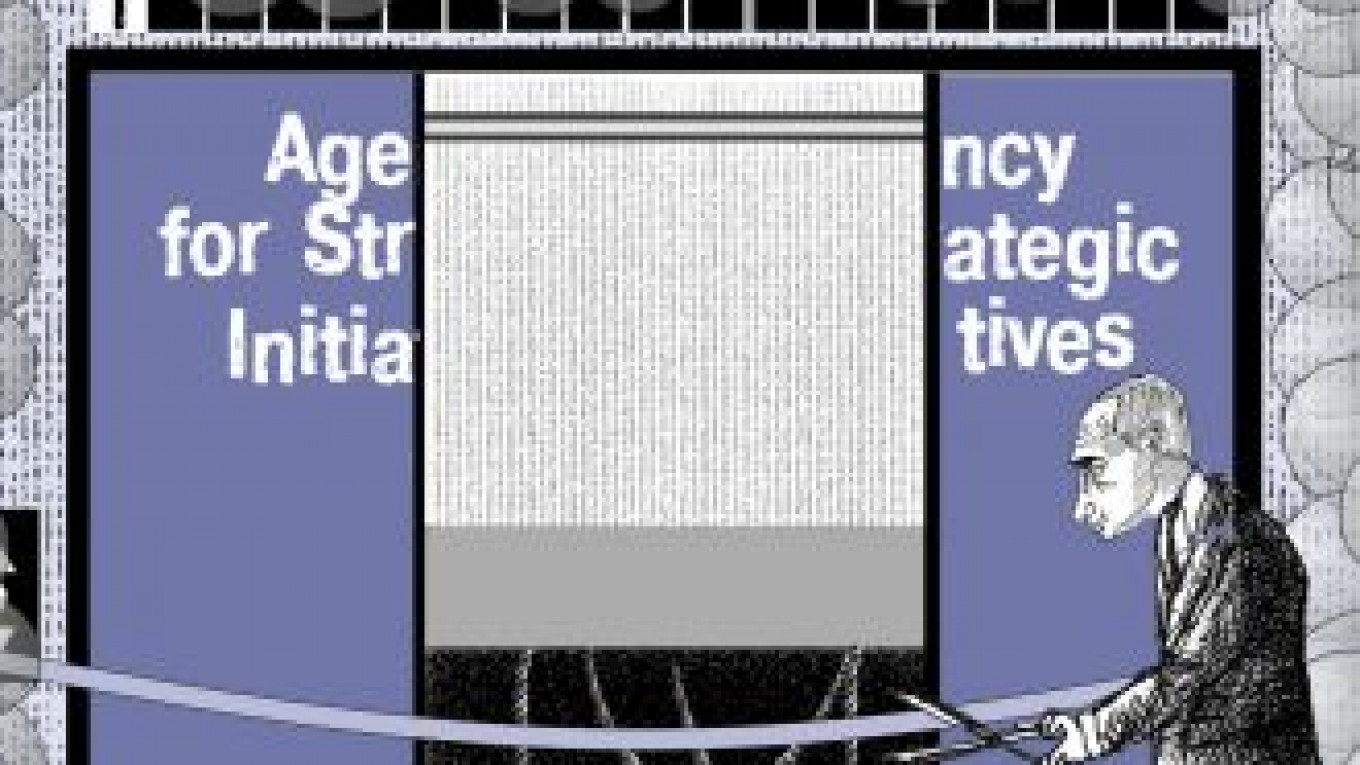It is telling that the Agency for Strategic Initiatives that Prime Minister Vladimir Putin plans to create was unveiled during the same Volgograd speech in when he announced the All-Russia People’s Front. Unfortunately, the two projects face the same fate.
This agency is needed, Putin explained, to help build real career ladders — or “social elevators” as Putin called it — that the country’s young, ambitious professionals can climb and realize their talents. When looking for work, Putin said, “the young generation face a situation in which … all good positions are already filled.”
Putin is correct to draw attention to this fundamental economic and social problem. But creating conditions that would enable citizens to get ahead in life is not an innovation. It is a fundamental responsibility of any respectable government. If Russians agree that there is something novel in the idea, this country is in serious trouble.
In a society that is governed by a functioning democracy, innovation and Putin’s desired career ladders are natural outcomes. Politicians, businesspeople, scholars and scientists all vie to achieve greater success and recognition. Unlike in Russia, serious scholars in the West on the whole don’t try to publish in glossy magazines, athletes and pop singers generally do not seek seats in parliament, and there are strict conflict-of-interest rules and regulations between government officials and business.
But perhaps the greatest social innovation of Western powers is the development of professionalism based on the division of labor and specialization, which dates back hundreds of years. That is what distinguishes modern society from feudal societies in which nepotism and favoritism — not merit — decide who gets top positions in government and business.
As it turns out, Russia’s greatest social “innovation” over the past decade has been the authorities’ backtracking on early attempts to create a grass-roots civil society. This is because the siloviki and businesspeople that have come to power have created an essentially feudal system that is driven by personal connections. As a result, economists and political scientists, for example, cannot achieve prominence without approval from the top, and only individuals with close ties to the authorities can succeed in business.
It is not uncommon for large corporations to simply buy out the government posts they need, placing their own pocket representatives in top state spots to obtain the required licensing, permits or approvals needed to bring a project to completion.
To get a good idea at how Russia’s career ladder works, take a look at most deputies in the State Duma. Their high net worth, both declared and undeclared, and breathtaking “success” speak for itself.
To allow the overwhelming majority of Russians without connections to achieve success, authorities need to implement a policy where the relatives of government officials and deputies are prohibited from holding posts in companies that receive government funding or that fulfill government contracts for at least five years after their retirement.
Russia has a huge pool of talented and active young people. Unfortunately, a significant portion of them sees little hope in Russia and immigrates to the West.
The authorities will accomplish nothing by rallying loyalists around hollow reforms. They need to listen to what the people are saying and respond to their needs and aspirations.
In the West, democracy and civil society transformed state power from being the people’s master into their servant. This type of society looks like a pipe dream for Russia, but the Kremlin can still take small steps in this direction. The question isn’t about the government’s ability to do this, but its fundamental desire to make the country more open, transparent and accountable.
Vladislav Inozemtsev is a professor of economics, director of the Moscow-based Center for Post-Industrial Studies and editor-in-chief of Svobodnaya Mysl.
A Message from The Moscow Times:
Dear readers,
We are facing unprecedented challenges. Russia's Prosecutor General's Office has designated The Moscow Times as an "undesirable" organization, criminalizing our work and putting our staff at risk of prosecution. This follows our earlier unjust labeling as a "foreign agent."
These actions are direct attempts to silence independent journalism in Russia. The authorities claim our work "discredits the decisions of the Russian leadership." We see things differently: we strive to provide accurate, unbiased reporting on Russia.
We, the journalists of The Moscow Times, refuse to be silenced. But to continue our work, we need your help.
Your support, no matter how small, makes a world of difference. If you can, please support us monthly starting from just $2. It's quick to set up, and every contribution makes a significant impact.
By supporting The Moscow Times, you're defending open, independent journalism in the face of repression. Thank you for standing with us.
Remind me later.








